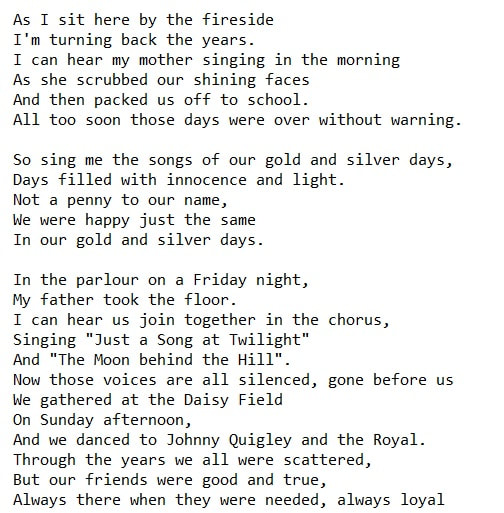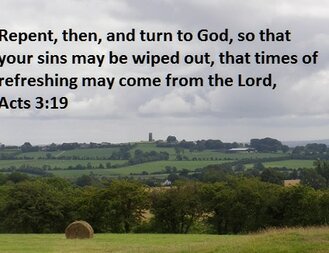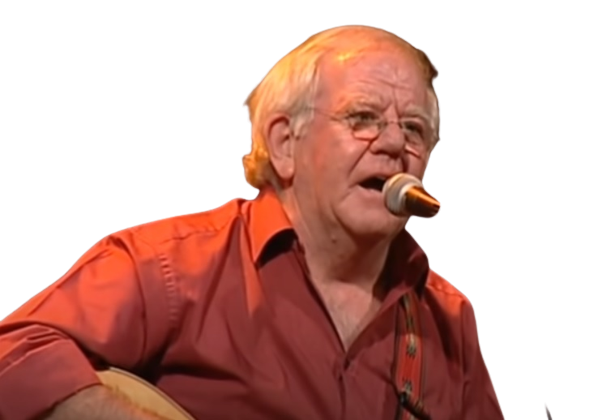Gold And Silver Days,Lyrics And guitar Chords
Written by Phil Coulter and recorded by Paddy Reilly, Foster And Allen, Ronnie Drew and Philomena Begley, great song. I have included the guitar chords in two sets of keys including the key that Paddy Reilly plays in in the youtube video. Also included is another song from the album called Kilty with the chords. Paddy Reilly's biggest hit will always be The Fields Of Athenry Song which he also recorded when he hooked up with The Dubliners for a spell. The word Days is used in many song titles including Thank You For The Days By The Kinks which was also recorded by Irish folk singer Luke Kelly.
The Sheet Music And Tin Whistle Notes For Gold And Silver Days are in the pdf version of The Tin Whistle Songbook Here .
Song Words And Chords In The Key Of D Major
[D]As I sit here[A] by the [D]fireside
I'm turning[A] back the [D]years.
I can [G]hear my mother[D] singing in the morn[A]ing
As she[D] scrubbed our[A] shining [D]faces
And then packed us [A]off to [D]school.
All too[G] soon those days were[D] over with[A]out warn[D]ing.
So [D]sing me the songs of our[G] gold and silver[D] days,
Days filled with innocence and [A]light.
Not a [D]penny to our name,
We were [G]happy just the[D] same
In our gold and[G] silver[D] days.
In the parlour on a Friday night,
My father took the floor.
I can hear us join together in the chorus,
Singing "Just a Song at Twilight"
And "The Moon behind the Hill".
Now those voices are all silenced, gone before us
We gathered at the Daisy Field
On Sunday afternoon,
And we danced to Johnny Quigley and the Royal.
Through the years we all were scattered,
But our friends were good and true,
Always there when they were needed, always loyal
[D]As I sit here[A] by the [D]fireside
I'm turning[A] back the [D]years.
I can [G]hear my mother[D] singing in the morn[A]ing
As she[D] scrubbed our[A] shining [D]faces
And then packed us [A]off to [D]school.
All too[G] soon those days were[D] over with[A]out warn[D]ing.
So [D]sing me the songs of our[G] gold and silver[D] days,
Days filled with innocence and [A]light.
Not a [D]penny to our name,
We were [G]happy just the[D] same
In our gold and[G] silver[D] days.
In the parlour on a Friday night,
My father took the floor.
I can hear us join together in the chorus,
Singing "Just a Song at Twilight"
And "The Moon behind the Hill".
Now those voices are all silenced, gone before us
We gathered at the Daisy Field
On Sunday afternoon,
And we danced to Johnny Quigley and the Royal.
Through the years we all were scattered,
But our friends were good and true,
Always there when they were needed, always loyal
Gold And Silver Days chords as played by Paddy Reilly.
[D]As I [G]sit here [D]in the [G]firelight
I'm [D]turning back the [G]years.
I can [C]hear my mother[G] singing in the morn[D]ing
As she[G] scrubbed our[D] shining [G]faces
And then packed us [D]off to [G]school.
All too[C] soon those days were[G] over without [D]warn[G]ing[D].
So [G]sing me the songs of our[C] gold and silver[G] days,
Days filled with innocence and [D]light.
Not a [G]penny to our name,
We were [C]happy just the[G] same
In [C]our [G]gold and[D] silver[G] days.
[D]As I [G]sit here [D]in the [G]firelight
I'm [D]turning back the [G]years.
I can [C]hear my mother[G] singing in the morn[D]ing
As she[G] scrubbed our[D] shining [G]faces
And then packed us [D]off to [G]school.
All too[C] soon those days were[G] over without [D]warn[G]ing[D].
So [G]sing me the songs of our[C] gold and silver[G] days,
Days filled with innocence and [D]light.
Not a [G]penny to our name,
We were [C]happy just the[G] same
In [C]our [G]gold and[D] silver[G] days.
Kilty As sung by Paddy O’Reilly
Instrumental [D] [G] [Em] [D]
I don't think that the word ''Harjen is correct.
Chorus
[D]Oh my love my lost one do not [G]leave me to [D]die
[G]Soon the wild [D]duck will fly [Em]far down the [A7]sky
Oh my [D]love my lost one do not [G]leave me to [D]die
For the strength and love of [G]you [Em]down here in Kil[D]ty
Verse 1
[D]I’ll be waiting for you where the [G]cockerel [D]cries
[G]Down here in [D]Kilty where the [Em]harjen re[A7]side
I’ll be [D]waiting for you where the [G]harjen re[D]side
For the strength and love of [G]yo[Em]u down here in Kil[D]ty
Instrumental [D] [G] [D] [G] [D] [Em] [A7]
[D] [G] [D] [G] [Em] [D]
Verse 2
[D]I’ll be waiting for you where the [G]small waters [D]flow
[G]Down here in [D]Kilty where the [Em]white thorns [A7]grow
The [D]white flowers of joy in your [G]bosom will [D]glow
When you see your fine young [G]so[Em]n down here in Kil[D]ty
Chorus
Oh my love my lost one do not leave me to die
Soon the wild duck will fly far down the sky
Oh my love my lost one do not leave me to die
For the strength and love of you down here in Kilty
Instrumental
[ Chords for the key of G ]
Chorus
[G]Oh my love my lost one do not [C]leave me to [G]die
[C]Soon the wild [G]duck will fly [Am]far down the [D7]sky
Oh my [G]love my lost one do not [C]leave me to [G]die
For the strength and love of [C]you [Am]down here in Kil[G]ty
Verse 1
[G]I’ll be waiting for you where the [C]cockerel [G]cries
[C]Down here in [G]Kilty where the [Am]harjen ? re[D7]side
I’ll be [G]waiting for you where the [C]harjen re[G]side
For the strength and love of [C]yo[Am]u down here in Kil[G]ty
Instrumental [G] [C] [G] [C] [G] [Am] [D7]
[G] [C] [G] [C] [Am] [G]
Verse 2
[G]I’ll be waiting for you where the [C]small waters [G]flow
[C]Down here in [G]Kilty where the [Am]white thorns [D7]grow
The [G]white flowers of joy in your [C]bosom will [G]glow
When you see your fine young [C]so[Am]n down here in Kil[G]ty .
Irish songs from G-J
Instrumental [D] [G] [Em] [D]
I don't think that the word ''Harjen is correct.
Chorus
[D]Oh my love my lost one do not [G]leave me to [D]die
[G]Soon the wild [D]duck will fly [Em]far down the [A7]sky
Oh my [D]love my lost one do not [G]leave me to [D]die
For the strength and love of [G]you [Em]down here in Kil[D]ty
Verse 1
[D]I’ll be waiting for you where the [G]cockerel [D]cries
[G]Down here in [D]Kilty where the [Em]harjen re[A7]side
I’ll be [D]waiting for you where the [G]harjen re[D]side
For the strength and love of [G]yo[Em]u down here in Kil[D]ty
Instrumental [D] [G] [D] [G] [D] [Em] [A7]
[D] [G] [D] [G] [Em] [D]
Verse 2
[D]I’ll be waiting for you where the [G]small waters [D]flow
[G]Down here in [D]Kilty where the [Em]white thorns [A7]grow
The [D]white flowers of joy in your [G]bosom will [D]glow
When you see your fine young [G]so[Em]n down here in Kil[D]ty
Chorus
Oh my love my lost one do not leave me to die
Soon the wild duck will fly far down the sky
Oh my love my lost one do not leave me to die
For the strength and love of you down here in Kilty
Instrumental
[ Chords for the key of G ]
Chorus
[G]Oh my love my lost one do not [C]leave me to [G]die
[C]Soon the wild [G]duck will fly [Am]far down the [D7]sky
Oh my [G]love my lost one do not [C]leave me to [G]die
For the strength and love of [C]you [Am]down here in Kil[G]ty
Verse 1
[G]I’ll be waiting for you where the [C]cockerel [G]cries
[C]Down here in [G]Kilty where the [Am]harjen ? re[D7]side
I’ll be [G]waiting for you where the [C]harjen re[G]side
For the strength and love of [C]yo[Am]u down here in Kil[G]ty
Instrumental [G] [C] [G] [C] [G] [Am] [D7]
[G] [C] [G] [C] [Am] [G]
Verse 2
[G]I’ll be waiting for you where the [C]small waters [G]flow
[C]Down here in [G]Kilty where the [Am]white thorns [D7]grow
The [G]white flowers of joy in your [C]bosom will [G]glow
When you see your fine young [C]so[Am]n down here in Kil[G]ty .
Irish songs from G-J
Paddy Reilly is a renowned Irish folk singer known for his powerful and emotive vocals, as well as his skillful guitar playing. Throughout his career, he has become a beloved figure in the Irish music scene, with a dedicated fan base and a vast repertoire of traditional Irish songs. His passion for music and commitment to preserving Irish culture through his music has solidified his place as a legend in the world of folk music.
Born in Dublin in 1939, Paddy Reilly was raised in a working-class family where music was an essential part of everyday life. From a young age, he was exposed to traditional Irish music through his parents and extended family, who were all talented musicians themselves. Reilly’s parents played the fiddle and accordion, and his siblings were also musically inclined. Growing up in this environment, it was only natural that Reilly would develop a deep love and appreciation for Irish folk music.
Reilly’s first exposure to performing came at the age of nine when he sang at a local talent competition. His natural talent and powerful voice were evident, and he quickly became known as a young prodigy in the Irish music scene. He received his first guitar at the age of 14 and was self-taught, learning to play by listening to recordings of Irish folk songs. He would often perform at local pubs and clubs, honing his skills and developing his unique sound.
In the 1960s, Reilly joined the popular Irish ballad group, The Dubliners, and quickly became a fan favorite. His rich baritone voice and skilled guitar playing added a new depth and dimension to the group’s sound. During his time with The Dubliners, Reilly recorded several hit songs, including “The Fields of Athenry” and “The Town I Loved So Well,” which have become staples in Irish folk music.
After leaving The Dubliners in the early 1980s, Reilly began a successful solo career, releasing numerous albums and touring extensively. He has performed all over the world, including in the United States, Canada, Australia, and throughout Europe. His performances are known for their authenticity and raw emotion, with Reilly often incorporating traditional Irish instruments such as the bodhrán and tin whistle into his music. He has also collaborated with other famous Irish musicians, including The Chieftains and The Clancy Brothers, further solidifying his status as a renowned figure in Irish folk music.
One of the most significant contributions of Paddy Reilly to Irish music is his dedication to preserving traditional Irish songs and passing them down to future generations. He has recorded many classic Irish ballads, such as “The Parting Glass” and “The Wild Rover,” ensuring that these songs remain a part of Irish culture. Reilly’s performances are not only a celebration of Irish music but also a testament to the importance of preserving cultural heritage.
In addition to his musical career, Reilly has also been involved in various philanthropic causes, including raising funds for children’s charities and supporting Irish culture and language initiatives. He was awarded an honorary doctorate from the National University of Ireland in recognition of his contributions to Irish music and culture.
Paddy Reilly’s influence on Irish folk music cannot be overstated. His powerful voice, skilled guitar playing, and dedication to preserving traditional Irish songs have solidified his place as a legend in the Irish music scene. He has inspired countless musicians and has brought the beauty and richness of Irish music to audiences all over the world. Through his music, Reilly has not only entertained but also educated and preserved Irish culture for generations to come.
Born in Dublin in 1939, Paddy Reilly was raised in a working-class family where music was an essential part of everyday life. From a young age, he was exposed to traditional Irish music through his parents and extended family, who were all talented musicians themselves. Reilly’s parents played the fiddle and accordion, and his siblings were also musically inclined. Growing up in this environment, it was only natural that Reilly would develop a deep love and appreciation for Irish folk music.
Reilly’s first exposure to performing came at the age of nine when he sang at a local talent competition. His natural talent and powerful voice were evident, and he quickly became known as a young prodigy in the Irish music scene. He received his first guitar at the age of 14 and was self-taught, learning to play by listening to recordings of Irish folk songs. He would often perform at local pubs and clubs, honing his skills and developing his unique sound.
In the 1960s, Reilly joined the popular Irish ballad group, The Dubliners, and quickly became a fan favorite. His rich baritone voice and skilled guitar playing added a new depth and dimension to the group’s sound. During his time with The Dubliners, Reilly recorded several hit songs, including “The Fields of Athenry” and “The Town I Loved So Well,” which have become staples in Irish folk music.
After leaving The Dubliners in the early 1980s, Reilly began a successful solo career, releasing numerous albums and touring extensively. He has performed all over the world, including in the United States, Canada, Australia, and throughout Europe. His performances are known for their authenticity and raw emotion, with Reilly often incorporating traditional Irish instruments such as the bodhrán and tin whistle into his music. He has also collaborated with other famous Irish musicians, including The Chieftains and The Clancy Brothers, further solidifying his status as a renowned figure in Irish folk music.
One of the most significant contributions of Paddy Reilly to Irish music is his dedication to preserving traditional Irish songs and passing them down to future generations. He has recorded many classic Irish ballads, such as “The Parting Glass” and “The Wild Rover,” ensuring that these songs remain a part of Irish culture. Reilly’s performances are not only a celebration of Irish music but also a testament to the importance of preserving cultural heritage.
In addition to his musical career, Reilly has also been involved in various philanthropic causes, including raising funds for children’s charities and supporting Irish culture and language initiatives. He was awarded an honorary doctorate from the National University of Ireland in recognition of his contributions to Irish music and culture.
Paddy Reilly’s influence on Irish folk music cannot be overstated. His powerful voice, skilled guitar playing, and dedication to preserving traditional Irish songs have solidified his place as a legend in the Irish music scene. He has inspired countless musicians and has brought the beauty and richness of Irish music to audiences all over the world. Through his music, Reilly has not only entertained but also educated and preserved Irish culture for generations to come.




